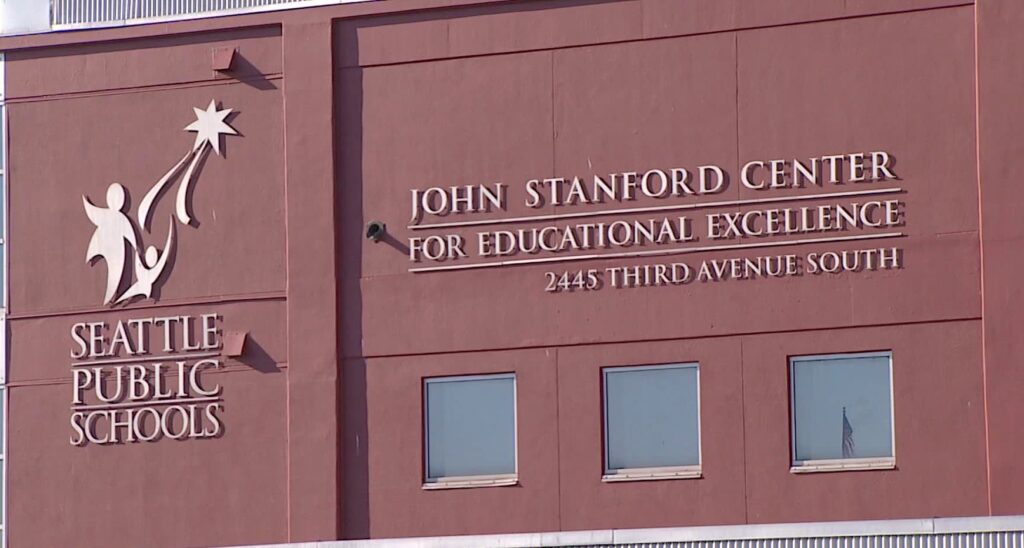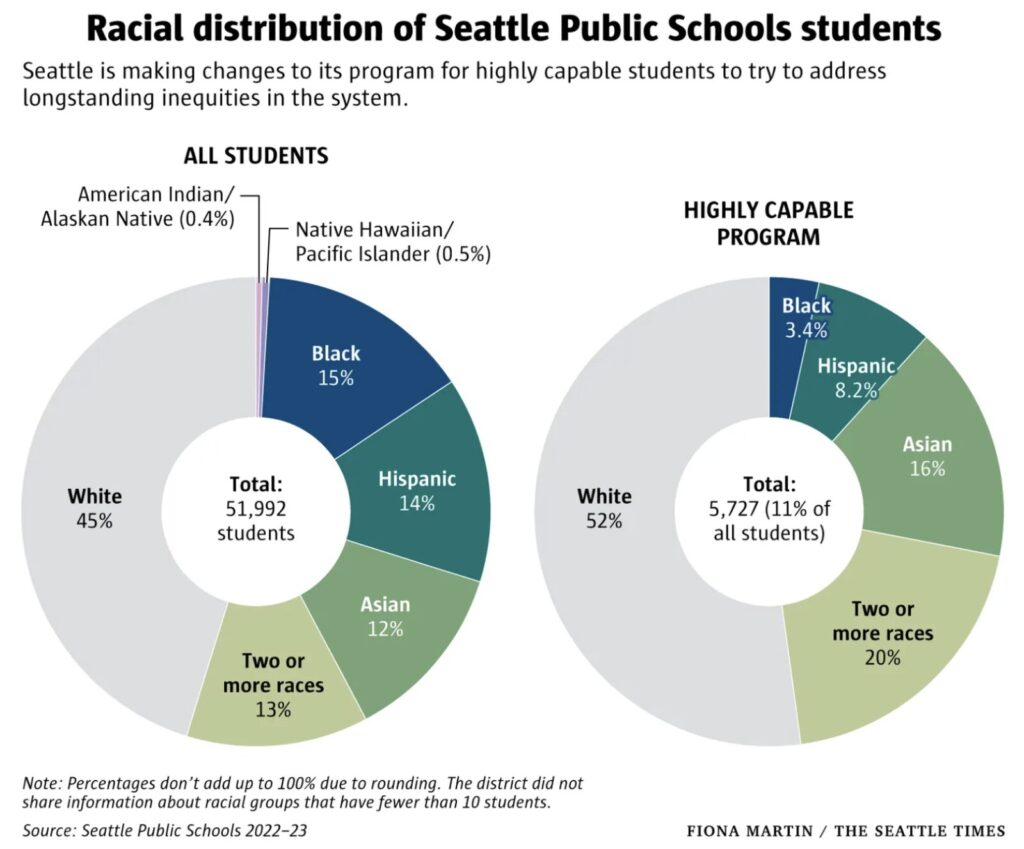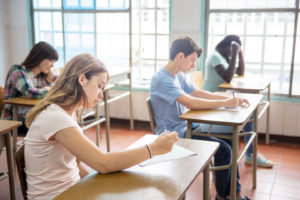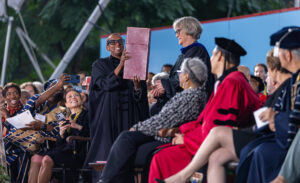Seattle Public Schools axes gifted learning over racial equity
If there was ever any doubt that “equity” was code for “worse education,” Seattle Public Schools has officially confirmed it.
In its crusade to achieve racial equity, SPS is effectively…

If there was ever any doubt that “equity” was code for “worse education,” Seattle Public Schools has officially confirmed it.
In its crusade to achieve racial equity, SPS is effectively axing its gifted learning program, and even the teachers aren’t happy about it.
Back in 2021, SPS started developing its new “Highly Capable Neighborhood School Model,” which keeps advanced learners in the same classroom as their less academically inclined peers.
Hypothetically, teachers would provide additional services to the gifted students while providing regular instruction to everyone else.
The problem?
“I was a classroom teacher for 14 years,” said Reby Parsley of the Washington Association of Educators of the Talented and Gifted. “It’s really hard to provide services to students when you have a group of kindergarteners learning phonics and then you have a kindergarten[er] that’s, like, fluently reading Harry Potter.”
Seattle’s gifted learners were those who tested in the 98th percentile or higher and simply needed a different learning environment.
Previously, those students could attend a highly capable cohort (HCC) school with similarly advanced learners, and parents were grateful for the opportunity.
“It was a real lifesaver,” recalled Katie McAllister, whose son learned to read at age 4. “I don’t know what would’ve happened if he was in a neighborhood school because he can be really frustrating (to the teachers around him) if he’s not challenged.”
Now, gifted learners will experience exactly that.
According to The Seattle Times, teachers also will be required to create individualized learning plans for every single student – something no one has the time or resources to do.
Though the new model is worse for students, parents and teachers, it does claim to improve one thing: racial equity.
White and Asian students perform better on average in Seattle – and nationwide – than Hispanic and black students, and therefore are slightly overrepresented in HCC schools.

“Numbers would suggest that within our city … predominantly white children are more gifted than other cultures and races, and we know that is absolutely not true,” said Kari Hanson, SPS’s director of student support services.
When the Seattle school board voted to phase out HCC schools in 2020, even black parents protested, but were accused of being “tokenized.”
Sadly, public schools nationwide are dumbing down their academics for the same reason.
Chicago’s school board recently considered a pro-neighborhood school measure to prevent students from testing into “selective enrollment” schools – ones with much better academic outcomes.
Other districts are axing advanced math classes and homework, and inflating grades, all in pursuit of equal outcomes across racial demographics.
However, not all communities are taking the changes lying down.
In March, San Franciscans won a huge victory at the ballot box, approving a measure to reinstate algebra in 8th grade, nearly a decade after it was removed for the sake of equity.



